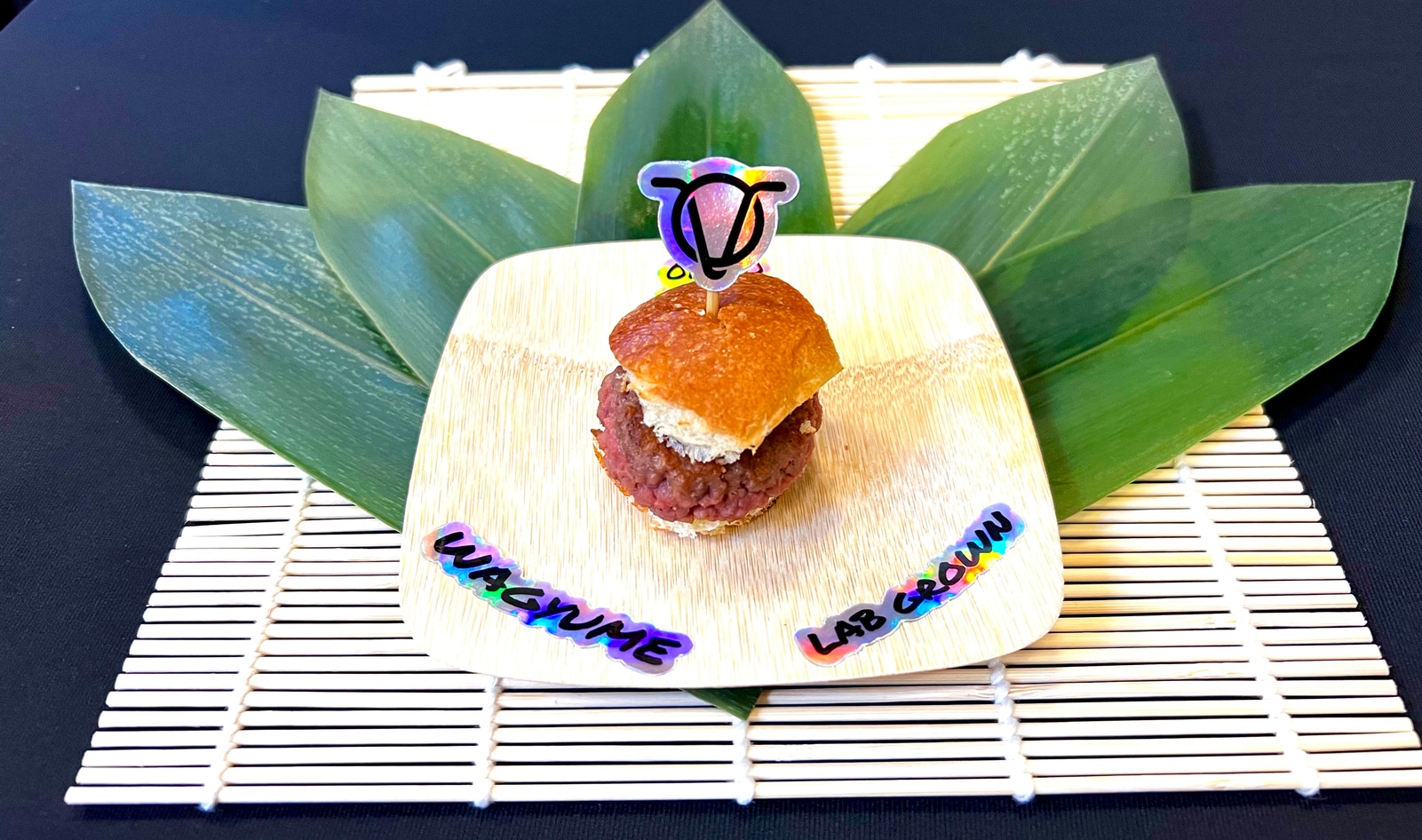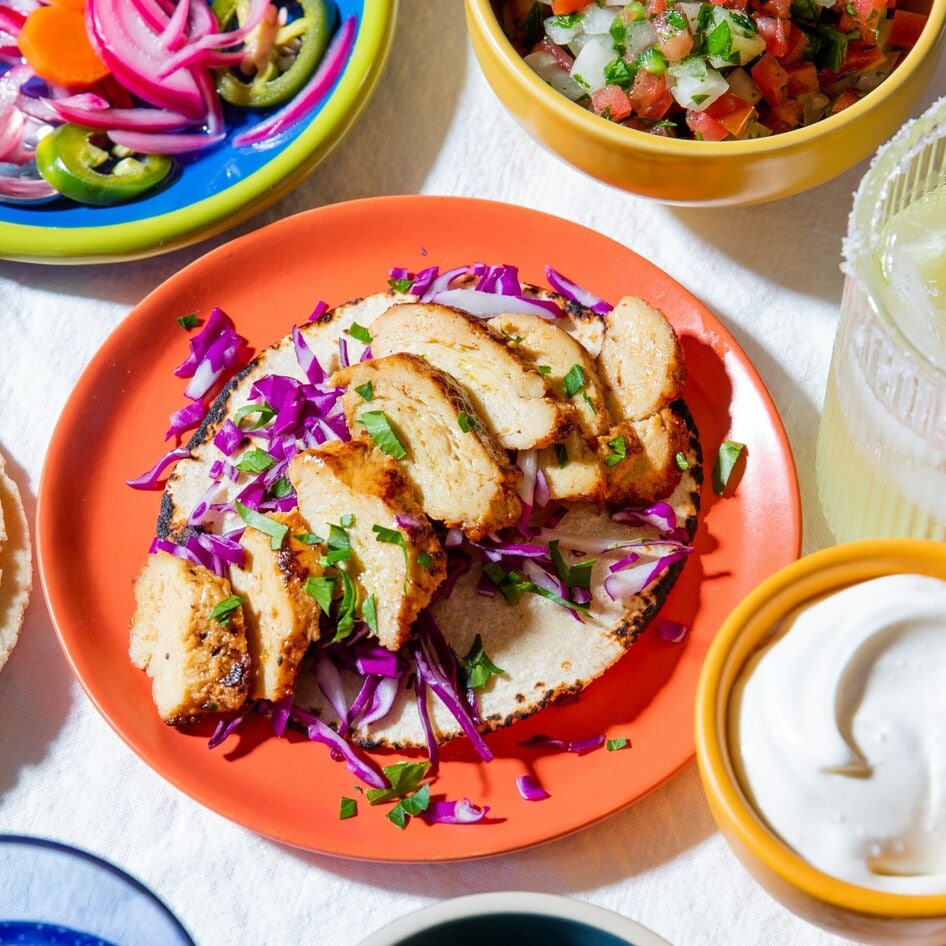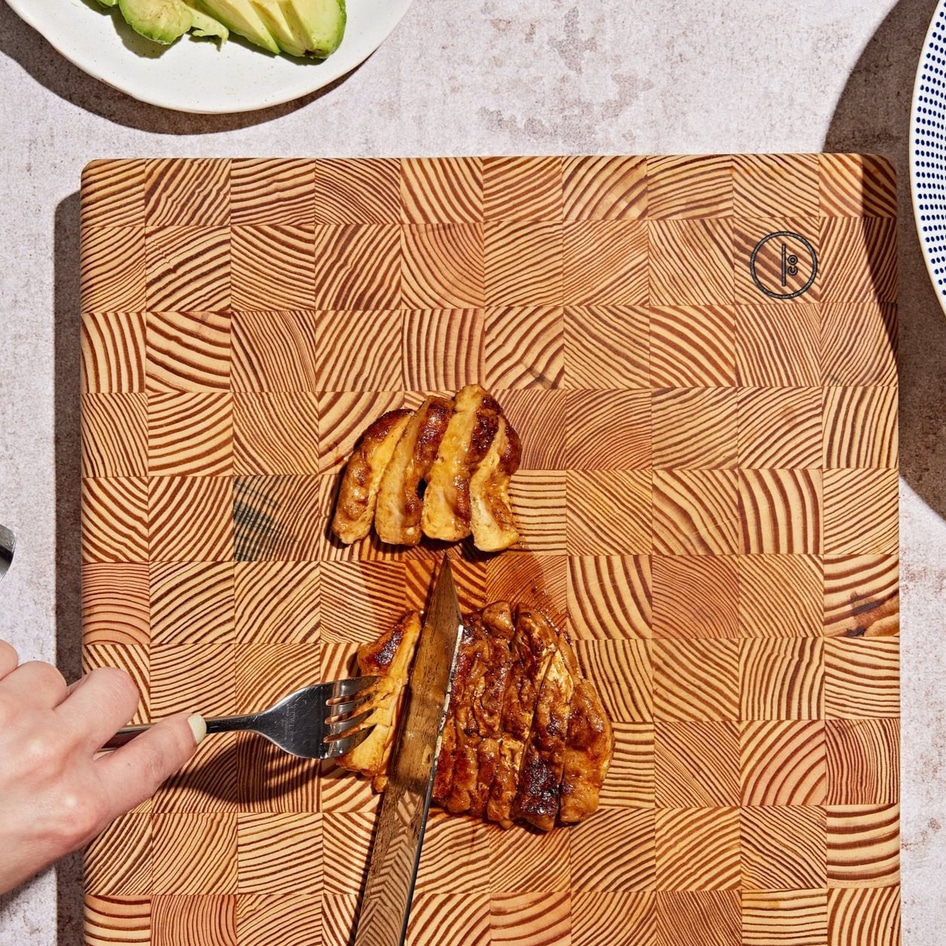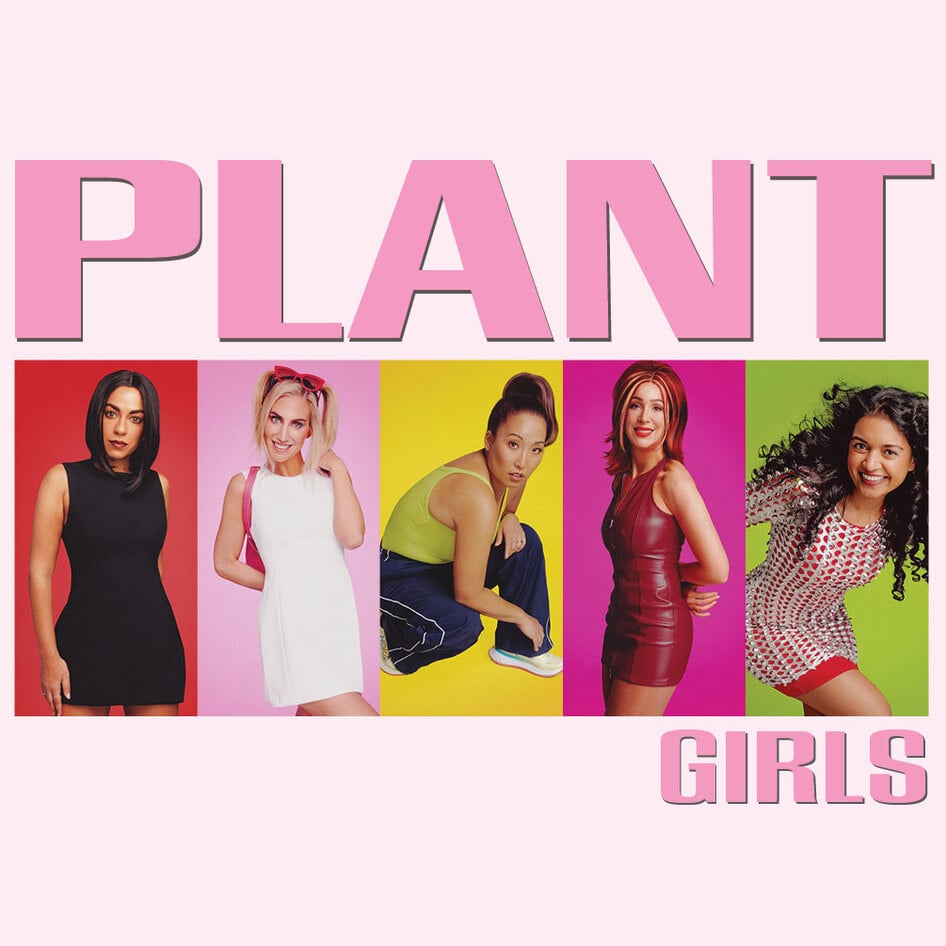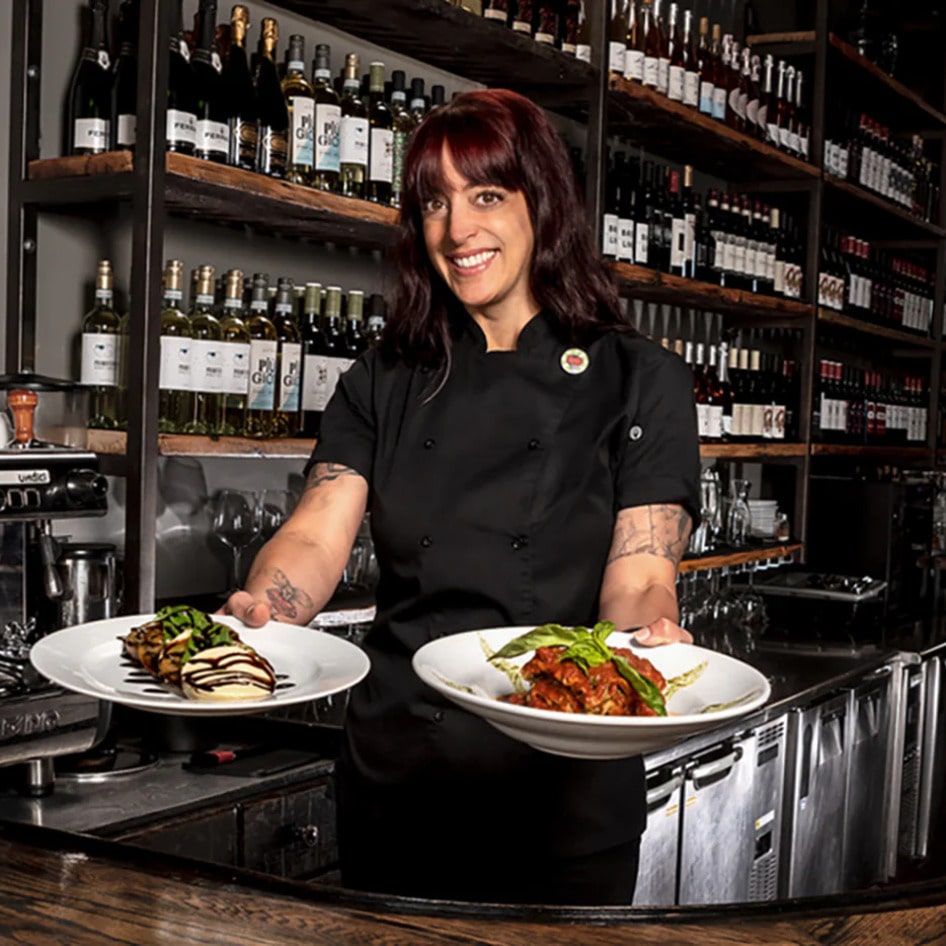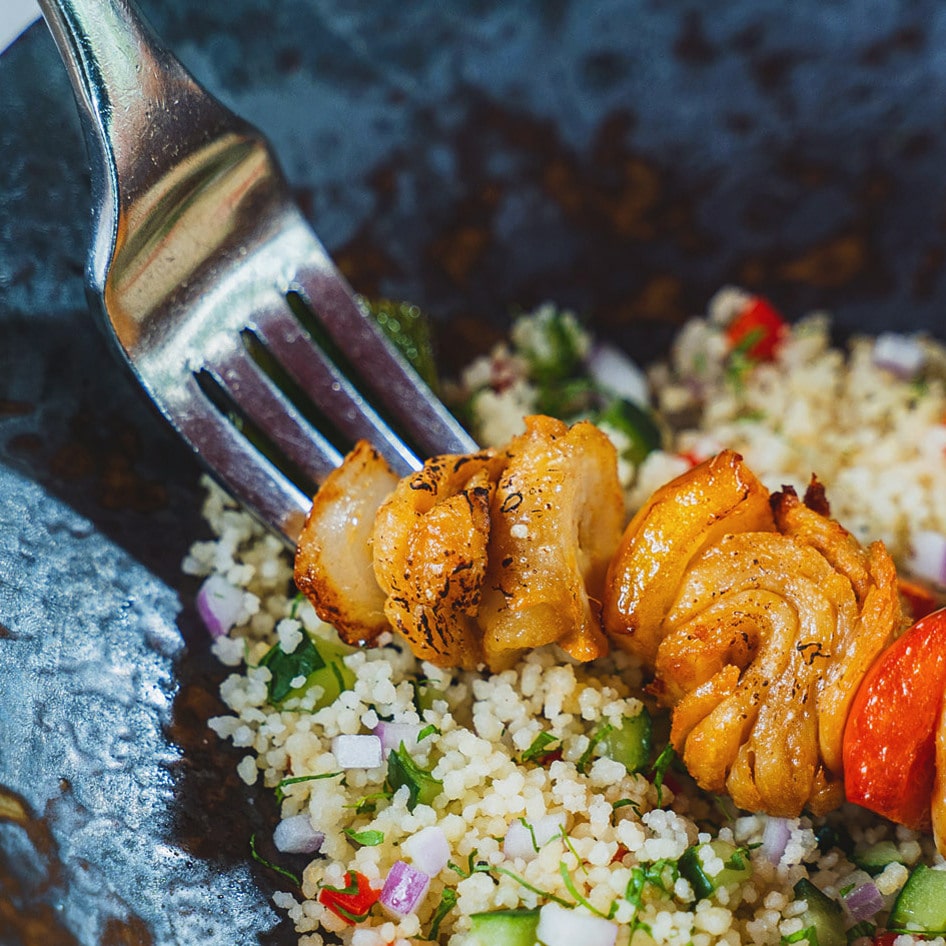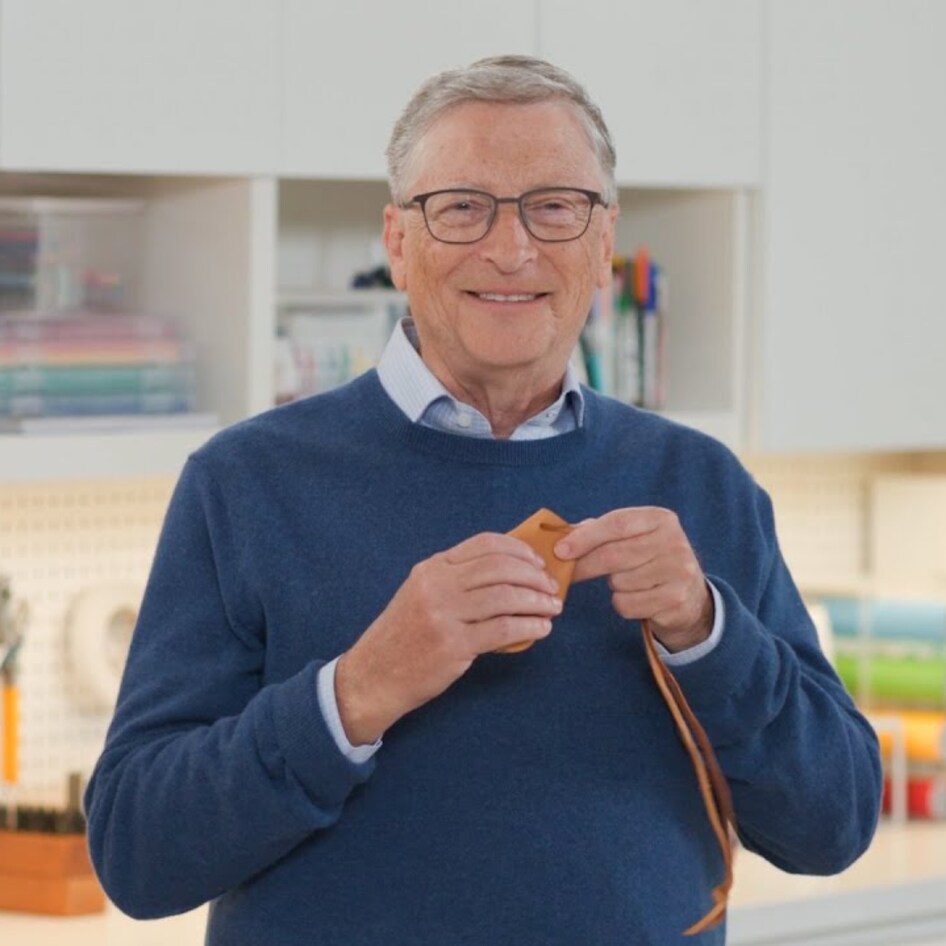Cellular agriculture stands to drastically transform the way meat and other animal-derived products are made. That’s because instead of raising, slaughtering, and exploiting animals en masse for food, cellular agriculture—as its name suggests—uses a small sample of cells which can be grown outside of an animal to make meat without any of the downsides of traditional agriculture.
And while making food in this way has far-reaching potential, are consumers ready to accept it? Results of early market research seem promising. In 2021, research published in scientific journal Foods surveyed 2,018 people in the United States and 2,034 people in the United Kingdom about their attitudes toward cultivated meat. They found that 40 percent said they were likely to try it, with younger participants showing the most openness.
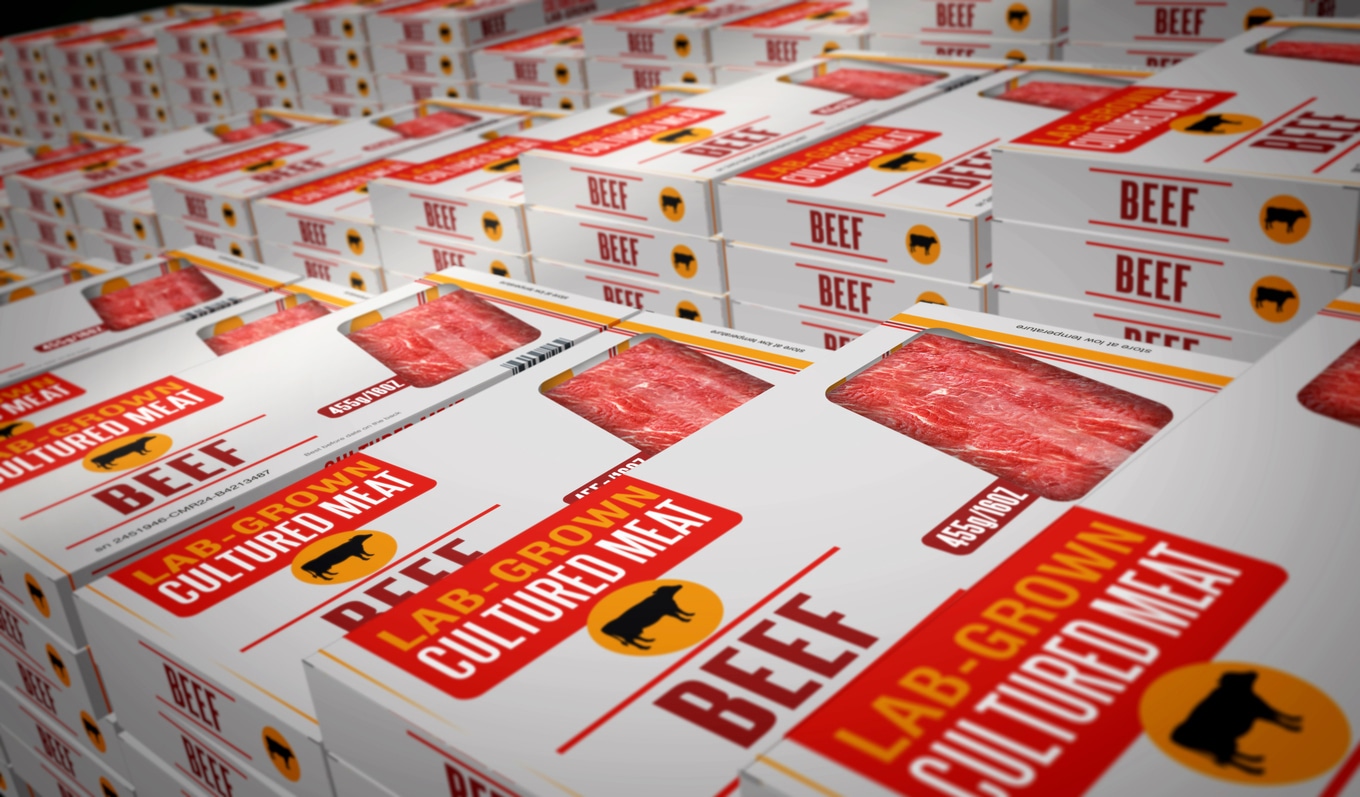 Getty
Getty
What will it take to convince the other 60 percent to give cultivated meat a try? Research by payroll platform Paychex shows that, perhaps, more consumers will be swayed if a woman is involved. Its study found that people, particularly in younger generations, rate women business owners more trustworthy than men, which could have a big impact on the public acceptance of cultivated meat.
As such, filling gender gaps at the top of the food innovation chain is a pressing matter that Vegan Women Summit (VWS) is taking to task. Women are underrepresented at the top of most industries and VWS is working to change that through a multifaceted approach that supports female leaders at every level to empower them to build a more sustainable food system.
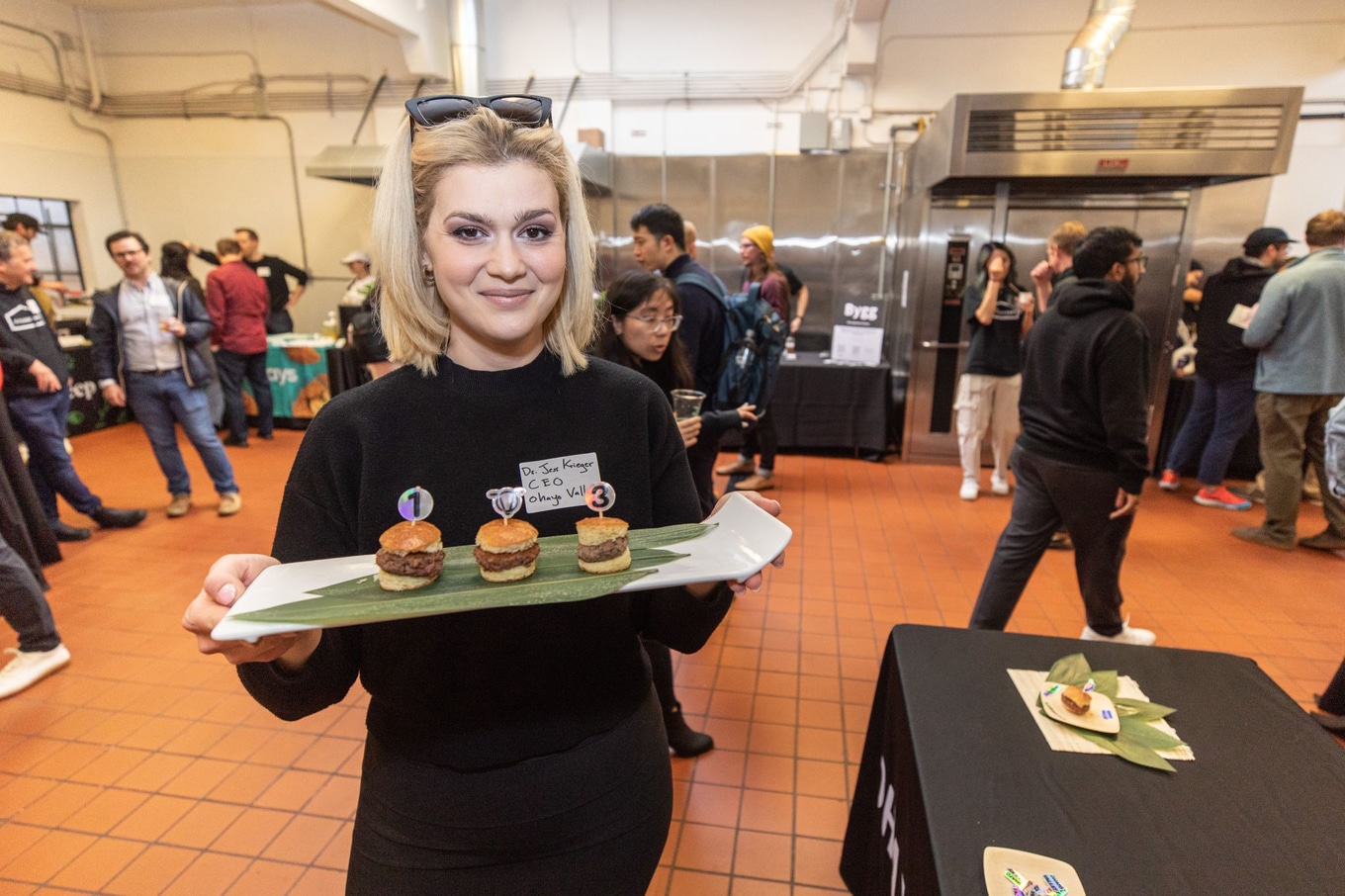 Ohayo Valley
Ohayo Valley
This year’s VWS will be in New York City in mid-May and will welcome a number of female-founded companies to showcase their innovations, including Ohayo Valley—a Berkeley, CA-based cultivated meat startup founded by Jess Krieger, PhD.
“Women will be central to building the future of food,” Kreiger tells VegNews. “We are consistently underestimated and underrated in society, but these systemic hurdles make us creative and resilient problem solvers.”
“Women think differently, feel differently, do things differently, and that’s exactly what the world needs right now: different and unique approaches to solving our biggest challenges,” she says.
Ohayo Valley’s cultivated wagyu beef
Krieger founded Ohayo Valley with the mission of changing the way meat is made and developing cultivated products that are better than their animal counterparts. While the traditional animal agriculture industry—a heavily male-dominated sector—is limited by the biology of animals, Krieger explains, cellular agriculture can use technology to develop superior products.
And she’s starting with cultivated wagyu beef, a coveted fatty meat from a specific breed of Japanese cattle.
“I don’t think if I had been born a man that I would have grown up to be the person I am today, fighting to fix our food system,” Krieger says. “My life experiences as a woman are what drove me to want to fix our food system, which is something the male-dominated world of traditional meat is lacking.”
Krieger and her team worked for more than a decade on the science behind Ohayo’s wagyu cultivated meat. At VWS, Ohayo will sample the cultivated meat as part of the WagyuMe burger blended with plant-based protein.
Unveiling her progress to the world at VWS, she says, felt like the perfect fit.
“Holding Ohayo Valley’s historic first public tasting at VWS is aligned with our mission because VWS unites women leaders of today and tomorrow to drive systemic, ethical change in society,” Krieger says. “Women change the world when we come together and support each other. The #MeToo movement and VWS are great examples.”
“Women have to support one another for society to progress beyond the dysfunction we have today,” she says.”
Tasting the future of food, made by women
In addition to Ohayo Valley, the VWS will be showcasing groundbreaking innovations made possible by female entrepreneurs—which the global platform supports through its annual VWS Pathfinder pitch competition.
At the conference in May, limited samples of these foods will be available for attendees with a lottery to win a tasting ticket.
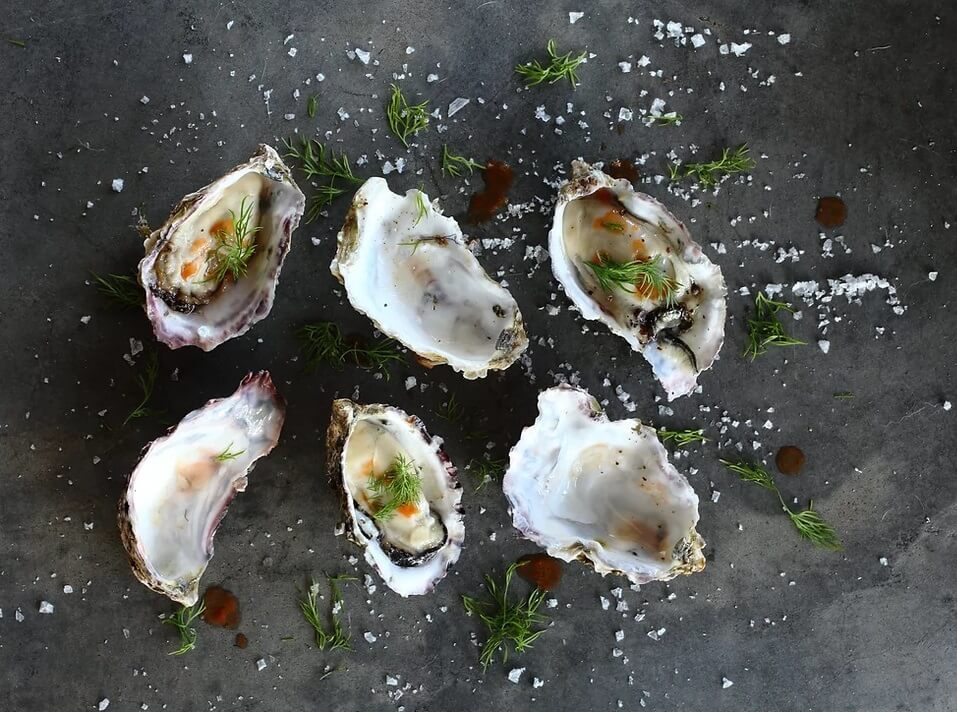 Pearlita Foods
Pearlita Foods
On the exclusive menu will be vegan oysters from North Carolina-based Pearlita Foods. This woman-led startup combines plant-based and cell-based technologies, along with a proprietary mushroom and seaweed base and novel flavor mixture, to create its oysters, which are served on recycled shells for an authentic eating experience.
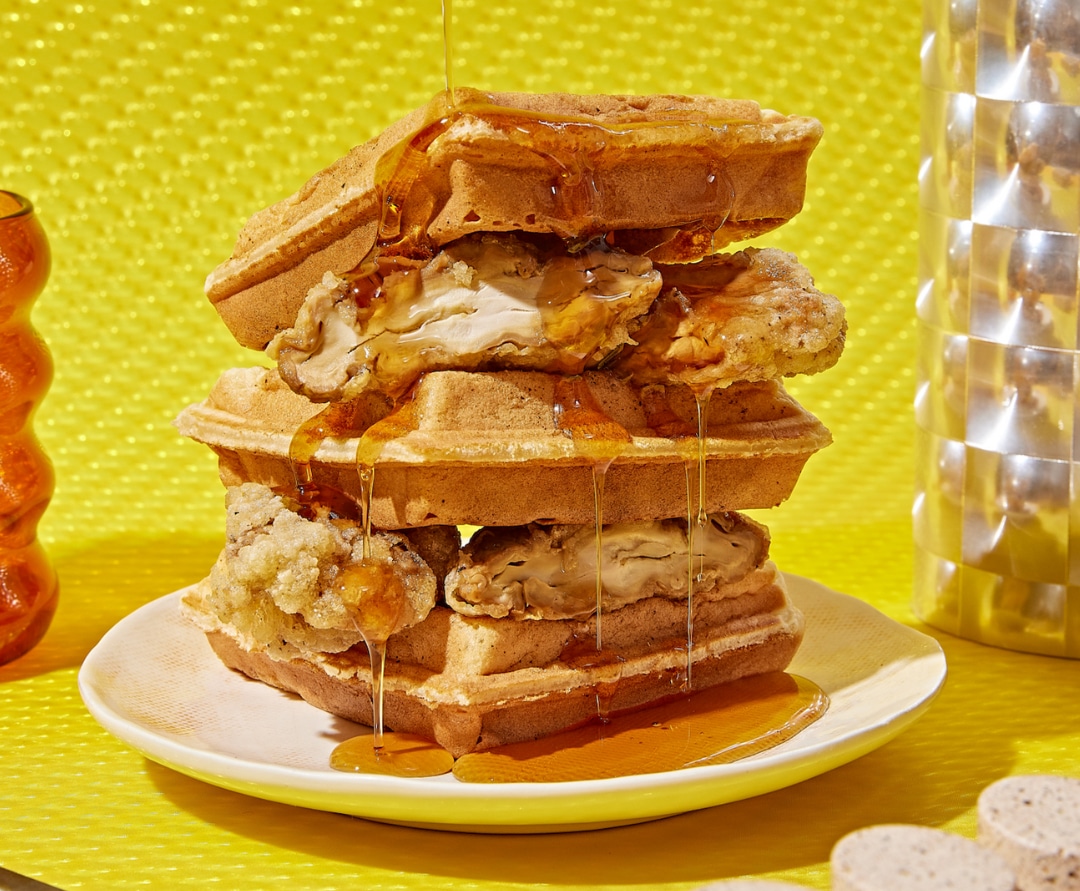 Bosque Foods
Bosque Foods
Bosque Foods (a Pathfinder alumni) will showcase its vegan chicken breasts, made with the magic of mycelium—the fast-growing root systems of mushrooms. Founder Isabella Iglesias-Musachio turned to making meat in this way after learning about the inhumane and unsustainable nature of animal agriculture. Bosque Foods can make vegan whole cuts in 10 days using its process, while also conserving resources.
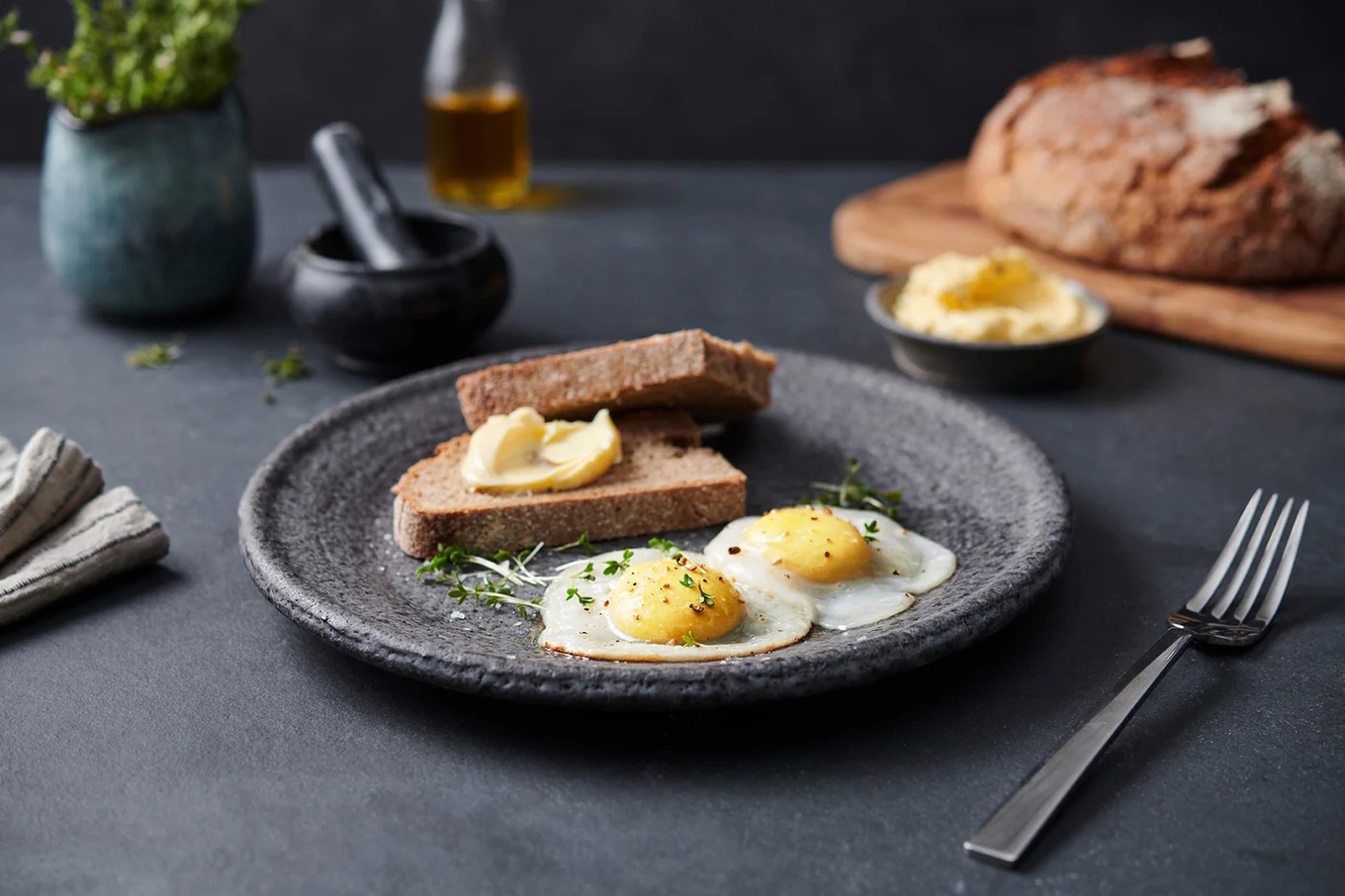 Neggst
Neggst
VWS attendees will also be able to experience vegan eggs from Germany’s Neggst (another Pathfinder alum); vegan bluefin tuna by California’s Impact Foods; and insights from the 100 speakers scheduled to participate in this year’s event.
“Not only are we proud to be debuting these cutting-edge technologies to the public, but every single brand is led by women—in an industry full of male CEOs,” Jennifer Stojkovic, Founder and CEO of VWS, said in a statement.
“Our attendees will have the opportunity to taste some of the latest and most exciting cell-cultured and plant-based animal alternatives from women founders—some for the first time in history,” she said.
Progress of cultivated meat
Ohayo Valley is coming into the spotlight during a time when the cultivated meat industry has made some big steps toward commercialization. Currently, the only place in the world where meat made this way is sold is Singapore—which granted Good Meat (a sister company of Just Egg-maker Eat Just) regulatory approval for its cultivated chicken in 2020.
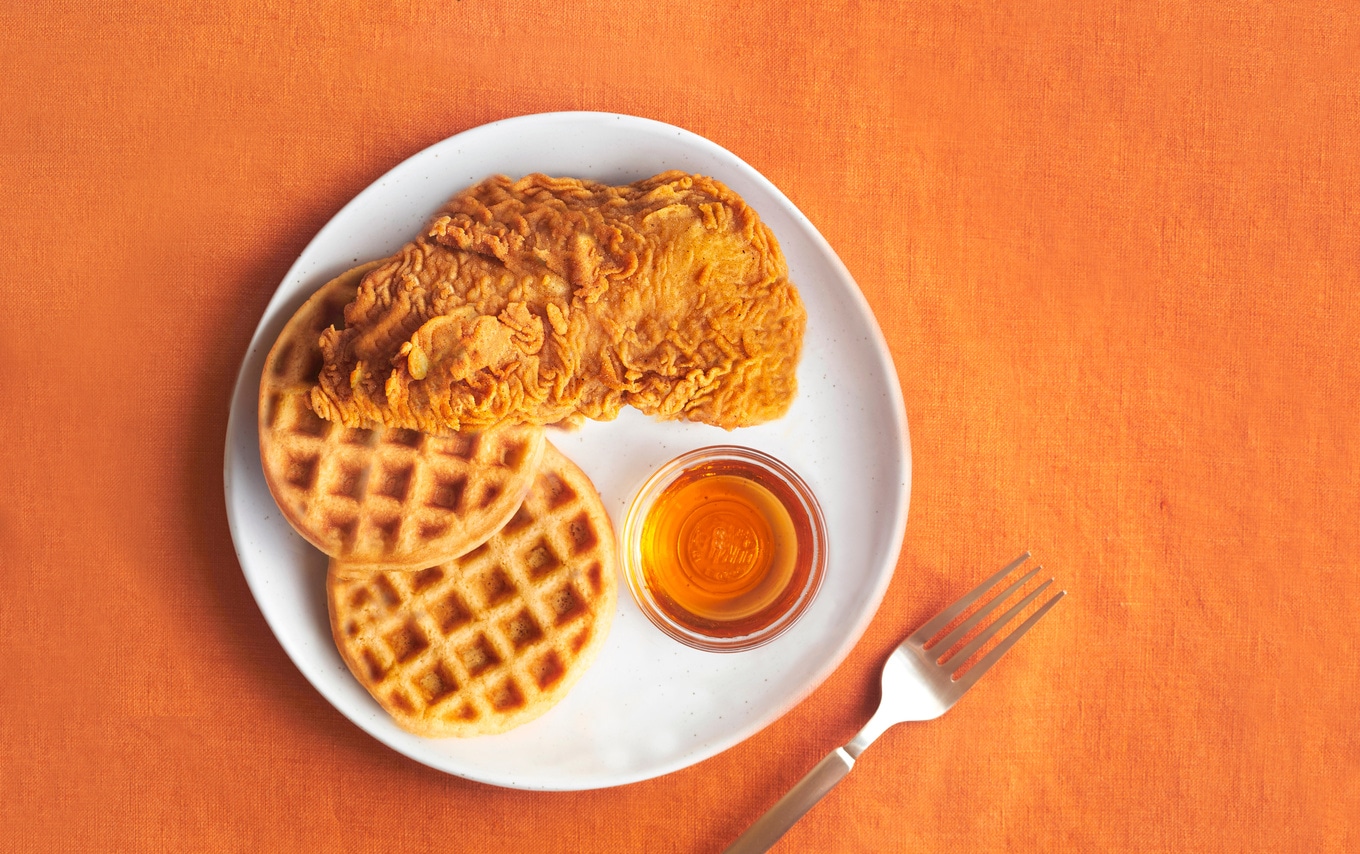 Upside Foods
Upside Foods
However, that may soon change as the United States—a major player in advancing the industry—is getting in on the action, too. Last year, the US Food and Drug Administration (FDA) granted generally regarded as safe (GRAS) status to cultivated chicken made by Upside Foods.
In March, Good Meat also nabbed a GRAS letter, putting its cultivated chicken one step closer to commercialization stateside. Both companies are now working with the US Department of Agriculture to gain its approval before they finalize their plans to go to market.
In the meantime, Upside has hit another milestone in its journey of removing costly, animal-based ingredients from its growth media. Last week, the company announced it developed a chicken cell line that does not require platelet-derived growth factors (a costly animal input).
As it eyes commercialization, Upside is also building out its chicken portfolio. While it plans to launch with its chicken filet, future products will include chicken sausages, chicken sandwiches, and dumplings.
For the latest vegan news, read:
JUMP TO ... Latest News | Recipes | Guides | Health | Shop

